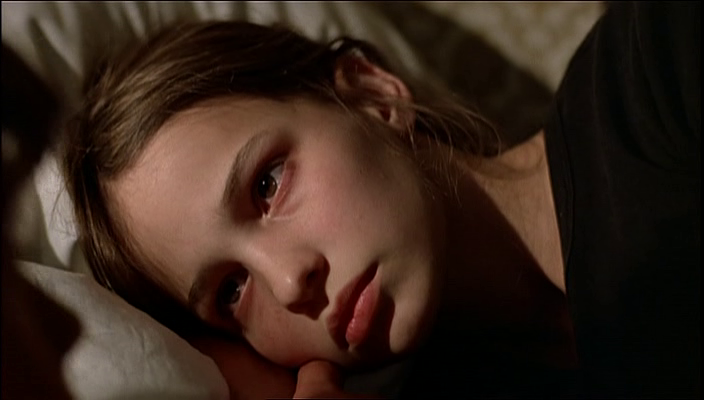|
Genres, Themes, Actors, and Directors:
- Alcoholism and Drug Addiction
- David Bowie Films
- Downward Spiral
- German Films
- Teenagers
Response to Peary’s Review:
Peary writes that this “controversial, grueling film” — “based on actual transcripts” — is “not as exploitative as you might have heard, but just as depressing”. He notes that it is “extremely graphic, unrelenting in its grimness, [and] believable” — and while it’s “obviously not for all tastes”, it “stays in memory”. Despite presenting drug culture as a no-man’s-land of desperation and debasement, the film became (and remains) a cult hit — due in part to an extended cameo concert appearance by David Bowie. What’s most impressive about the film (which is indeed a grueling, over-long viewing experience) is how authentically it portrays the gradual, almost inevitable allure of drugs to young teens seeking social approval and a sense of community. Christiane is a spunky girl, and resists heroin numerous times until she finally decides to “just try it” — first snorting, then injecting, always insisting she won’t let herself lose control, even as she gradually compromises her morals to earn money for drugs. She and her boyfriend — in perhaps the film’s most infamous scene — go through a harrowing withdrawal (rivaling that in Trainspotting), but they immediately relapse, and witness several of their street friends dying. Sadly, the real “Christiane F.” — who outed herself at an early age to help promote the film — remained an addict her entire life, and noted in a 2013 interview that while she was near death due to poor health, she had no plans to change her lifestyle.
Redeeming Qualities and Moments:
- Natja Brunckhorst as Christiane

- An appropriately seedy view of drug addiction

- Jurgen Knieper’s score
Must See?
Yes, as a cult favorite.
Categories
Links:
|
One thought on “Christiane F. (1981)”
First and last viewing. Not must-see (and I’ve no explanation as to what would establish the film as a cult item).
I would strongly disagree with Peary regarding the film being “not as exploitative as you might have heard…”. Although, in the last 30 seconds, the actor playing Christiane tells us that she finally got herself clean (not true in real life, as noted in the assessment above), it’s too little too late. The film is more or less relentless (and relentlessly bleak) in its portrait of heroin addiction.
We even get a post-script at the end, telling us that a few of the non-actors in the cast actually overdosed while in their teens. One can only imagine that the director thought to himself, ‘Well, chances are they’re going to die anyway – may as well document it, since it seems there’s little else that can be done for them if they don’t want a cure.’
Lacking any kind of real insight, the film completely misses the mark as a cautionary tale. And how many films like this do we really need? With its addition of a ‘love story’ between the main characters, what we basically have here is a redux of 1971’s ‘The Panic in Needle Park’ (a more memorable film on the subject).
David Bowie appears around the 35-minute point and sings ‘Station To Station’ live. Perhaps he agreed to perform to support addiction-awareness. Impossible to say.
Watching people take drugs on-screen is boring. And we learn nothing just by observing it as we do here. It’s presentational and that’s about it. I’m not trying to be cold=hearted in my dismissal of this film. I just don’t think it adds anything pertinent or helpful to the examination of ‘the drug problem’.